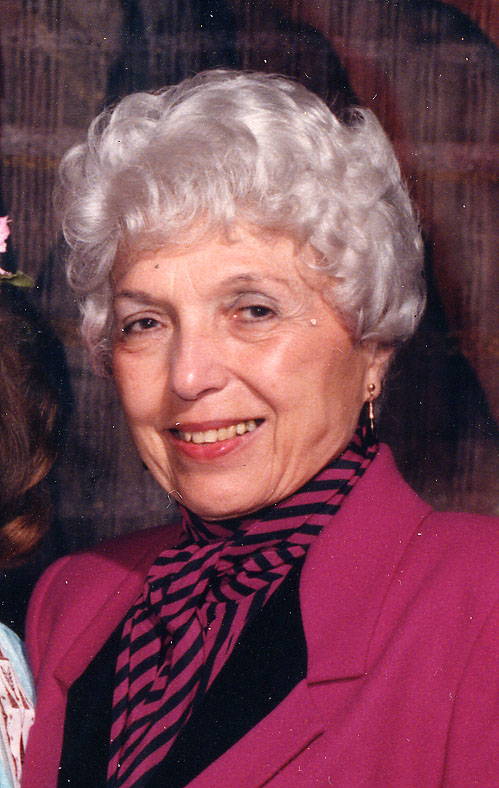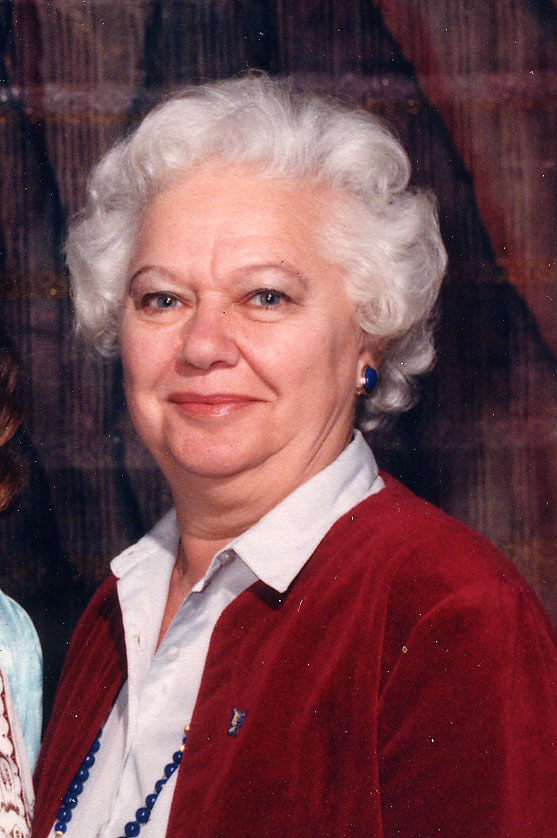By
Donald H. Harrison
I like to tell the story of the time when I was in college and decided to
take a bus trip from Los Angeles to New Orleans. When I got to Houston, I called
my mother to let her know everything was all right.
 
Moms- Alice Harrison Walters,
left, and Sydel Zeiden
We talked for a little while longer, and then I said I needed to get back to the
bus. "Be careful crossing the street!" she warned.
"Mom," said I, astonished. "Iım 2,000 miles from home, and you're
telling me to be careful crossing the street?"
"Wellllll," she replied, defensively.
"Well, indeed," I chuckled.
Years later, whenever my mother would get a little over-protective, I always
would listen to her carefully, repeat her instructions, smile and then add:
"and... I'll be careful crossing the street!"
"Oh, you!" she would reply, stomping her foot.
It became a game with us. I never could understand other sons and daughters who
would get upset by similar shows of parental love.
Today, when people say "Jewish mother," I am told they are referring
to mothers who try to make their adult children feel guilty for a variety of
offenses.
"Mom, I canıt make it over to see you tonight."
"Don't worry, I'll sit in the dark. And who really needs heat in an
apartment?"
Sometimes, they mean a mother who has very high ambitions for her children. Like
the mother whose son became the first Jewish President. She pointed to him one
day and told a friend: "You know, his brother is a doctor!"
I've never really understood either stereotype about Jewish mothers. I've really
known two in my life my own mother and my wifeıs mother, whom I also call
"Mom."
My mother, Alice Harrison Walters, may she rest in peace, was an incredibly
kind, caring woman. After my father Martin died, Mom moved down here from Los
Angeles and became involved in a variety of projects, including one helping to
resettle refugees from the former Soviet Union.
There was one woman, Dora, in whom mother particularly took a special interest,
perhaps because her own mother's name was Dora. She remembered family stories
about how the Hebrew Immigrant Aid Society had helped Jews get settled in the
United States. 'HIAS' was a term of reverence in Grandma Dora's household, and
it brought my mother to tears thinking how she could repay the kindness by
helping another Dora.
Thirty years before she died, my mother had a radical mastectomy. Recovery from
the operation was not easy; I still can remember the way she winced as she would
practice lifting her arm against a wall.
Mom subsequently volunteered to speak to other women who had to undergo similar
surgeries for breast cancer. She would go into their rooms, introduce herself
and tell them that though they may worry about disfigurement, in fact their
lives would return to normal.
The women would look at Momıs beautiful trim figure and say something like,
"Yeah, like how could you possibly know?" And Mom would tell them:
"I know because I had the same surgery you did. I am wearing a prosthesis
right now." To quell their disbelief, she sometimes would have to close the
curtain and show them.
And then their questions would pour out and sometimes Mom would sit with them
for hours. I met several of these women later, and they told me that, thanks to
mother, they had a whole new positive attitude toward life.
Jewish mother? Alice Harrison Walters was one of them.
My wife Nancy's mother is Sydel Zeiden, a resident of Ocean Hills Country Club
in Oceanside. One of 10 children, Sydel remembers how her mother, Fannie, used
to cook great big dinners every day of the week, not just for Shabbat, to feed
her happy, clamorous family. As they grew, the children never had to ask if they
could bring friends over at Fannie's house there
was always enough, no matter what.
Hungarian by birth, Fannie spoke enough English to know that "in-law"
was not a nice phrase. To her mind, there was no such thing as an in-law. When
someone married one of her sons or daughters, they became family too. She didn't
differentiate between those who came by birth or those who arrived by
marriage they all were her children.
Nancy's parents, Sam and Sydel, always have treated me exactly the same way: not
as a son-in-law, but as a son. Especially after my own mother died, I realized
how very lucky I was to have a mother like Sydel in my life.
Jewish mothers? Fannie Fischer was one of them. And Sydel Zeiden, 80 years
young, is one of them.
My wife Nancy is an incredible mother. There is no task too demanding, no errand
too time-consuming, no challenge too daunting that Nancy doesn't take on if it
is for the good of our children, Sandi and David. As she raised them to
adulthood, Nancy always was incredibly loyal, sometimes over-protective,
exceptionally loving, slow to anger, quick to forgive.
Now that Sandi and David are grown, Nancy remains ever involved in their lives,
quick to take up their cause, bear the burden, do the task.
Jewish mothers? Nancy's another one.
Our daughter Sandi and her wonderful Israeli husband, Shahar Masori, now have a
2-year-old son, Shor, who walks, talks, reasons, smiles and beguiles.
Maybe Teletubbies taught him how to do a "big hug," but Sandi
has shown him how to do "an Eskimo kiss" by rubbing noses and a
"butterfly kiss" by flicking his lashes on your cheek. She reads to
him, teaches him, takes him on outings to share the world with him, demonstrates
to him the meaning of kindness, and, yes, Sandi is a "Jewish mother"
too.
Jewish mothers? The whole world should be so lucky!
|
|

